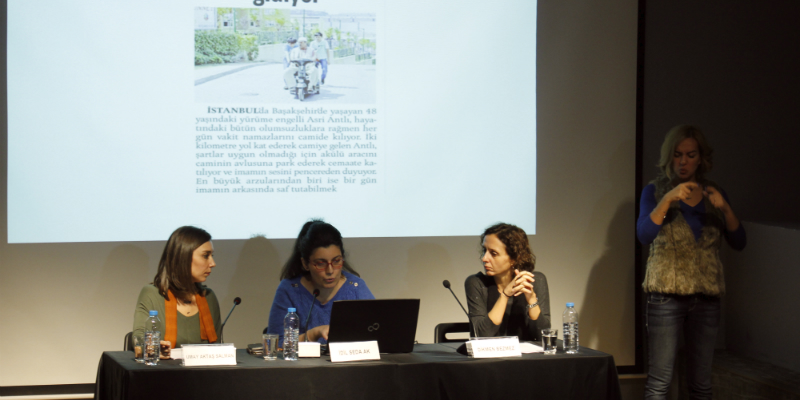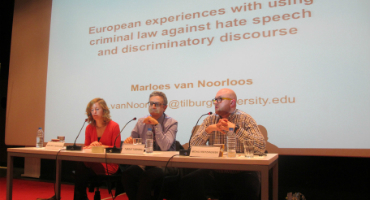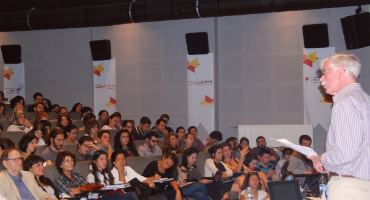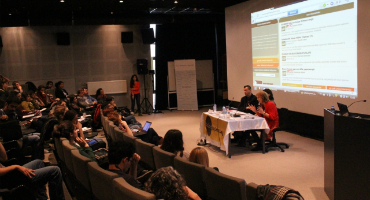The third event of thematic workshop series on discriminatory discourse in the media and rights-based approach to journalism, entitled ‘Discrimination against Persons with Disabilities in the Media’ was organized in Havak Hall, Anarad Hığutyun Building on October, 27 2015 by Hrant Dink Foundation in collaboration with AccessAbility İstanbul Exhibition. The workshop was held under the moderation of İdil Seda Ak from Association for Women with Disabilities and the speakers were Umay Aktaş Salman from Al Jazeera Turk and Dikmen Bezmez from Koç University.
Firstly, İdil Seda Ak evaluated media’s point of view as violating the rights of persons with disabilities; especially, she shared several news examples on discriminatory and sexist discourse to discuss the discrimination against women with disabilities. She emphasized the demand of persons with disabilities to take a full, equal and dignified role in society at large as it is raised by AccessAbility İstanbul Exhibition. In this regard, her opening speech focused on how to achieve rights-based journalism regarding persons with disabilities in the news and visuals in the media.
Following Ak’s presentation, Umay Aktaş Salman underlined the power of the media in raising awareness in the society and underlined the responsibility of the media. Salman analyzed several agency news and explored how discriminatory discourse on media caused prejudice against persons with disabilities in the society. Salman also pointed out how persons with disabilities are either invisible or occupies limited space in the news. She claimed that disabled people are either portrayed as helpless and incapable with dramatic stories or as the subjects of outstanding success stories. Salman emphasized that it is the responsibility of the journalists, working within the frame of rights-based journalism, to make the rights of persons with disabilities visible. Instead of showing disability as an extraordinary situation, the news content should be produced with regards to principle of equal citizenship, she suggested.
Lastly, with the contribution of Dikmen Bezmez, the works of Disability Studies Initiative and the use of terminology were discussed. Bezmez discussed five different types of discourse on disability appearing in the media: tragedy, medicalization of disability, outstanding success stories, disabled persons as freaks and disabled persons as children. Following these categories, she shared the findings of her research which focuses on the ways television programs on health represent the disability. In these television programs on health, persons with disabilities are situated within the family institution. Also, disability is depicted as a disease which should definitely be treated. She also explored the relationality of religion and disability for these television shows. She claimed that the doctors who feature as experts on these TV shows have significant impact on society so that their role should be considered.
The issues of accessibility, responsibilities of the state, discrimination, othering, discourse used in the media and its effects were among the discussion topics of the workshop on ‘Discrimination against Persons with Disabilities in the Media’. It was followed by a further discussion about disability as a way of existence and its representation in the media as a negative situation. In this regard, serious results of the lack of rights-based approach in journalism and possible ways to increase favorable examples were explored.





